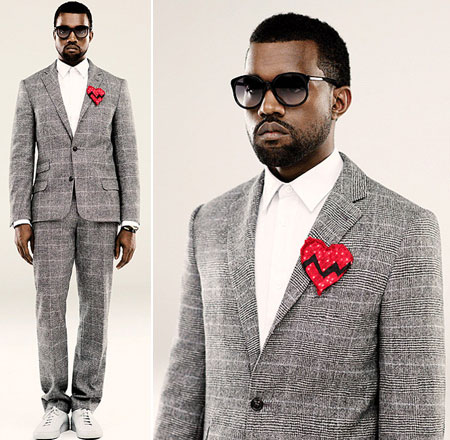


Now before I start this post, I just want to say I am an avid and passionate listener of Hip-Hop music. Growing up in West LA, this sound was very prevalent in my adolescence and environment. In high school I was a huge fan emcee's like Nas, Mobb Deep, Wu-Tang, DMX, Snoop Dogg, Jay-Z and Biggie, and also a huge fan of rap producers like RZA, Havok, DJ Premier, Dr. Dre, Trackmasters, Timbaland and The Neptunes, shaping my musical tastes to be very Hip-Hop oriented. But even with all this personal admiration for the sound, I've started to see a pattern of injustice within the relationship between the hip-hop stars and their fans of which I feel very strongly about, but, as I type, feel torn with my views in juxtaposition with the love for my music.

Not all but much of the content in hip-hop, especially gangsta rap, has to do with money, sex, violence and the implicit promotion of material possessions (eg. cars, brand names), misogyny, male sexual promiscuity, recreational drug usage and social disrespect. On their videos you see half-naked, sexy woman, cars with huge rims, marijuana smoking, money stacks being tossed around and guns flashing. A lot of youngsters, many from single-parent homes, foster homes, low-income/higher crime neighborhoods, are heavily impressed with these images and assimilate them into their values, aspirations and self-esteem. A lot of rappers glorify this way of living, making it seem like it has the sparkles of life but in reality I would dare say that chasing the glam of it all actually leaves society worst off. I wouldn't be surprised if gangsta rap creates more abortions, more children out of wedlock, more inner city violence and crime, and higher hostility and harm to police officers. Ironically, the fans essentially pay the artists and their record labels ridiculous amounts of money in exchange for their "hot" albums of filthy ideals and empty dreams, keeping the cycle going on as the rappers responsible grow richer and richer. In this way I believe some hip-hop music inhibits the exposure of more wholesome, prudent, responsible, rational and conscience thoughts and beliefs due to the dominance of hip-hop culture.

But in defense, though lots of hip-hop artists often are displayed in the media after committing a crime, not all of them are entirely about the money and sex. Jay-Z, Kanye West, A Tribe Called Quest, Common and Talib Kweli are example of artists who rap about social injustices and try to influence conscience thoughts in their fans. And I have to say that I, personally, have never shot anyone, sold drugs, been with a woman intimately and afterward treated her like junk, had a child out of wedlock, had any altercations with police nor been on TV for a crime so I'm living proof that hip-hop isn't completely brainwashing. There are some people, however, who do take the music more seriously, and these people can be influenced to manifest the ideals of these immoral messages, leading to a more problematic society.
-gs1r-

LISTENING TO:
Rich Girlsby:
ShwayzeRich Girls - The Mixtape



 Not all but much of the content in hip-hop, especially gangsta rap, has to do with money, sex, violence and the implicit promotion of material possessions (eg. cars, brand names), misogyny, male sexual promiscuity, recreational drug usage and social disrespect. On their videos you see half-naked, sexy woman, cars with huge rims, marijuana smoking, money stacks being tossed around and guns flashing. A lot of youngsters, many from single-parent homes, foster homes, low-income/higher crime neighborhoods, are heavily impressed with these images and assimilate them into their values, aspirations and self-esteem. A lot of rappers glorify this way of living, making it seem like it has the sparkles of life but in reality I would dare say that chasing the glam of it all actually leaves society worst off. I wouldn't be surprised if gangsta rap creates more abortions, more children out of wedlock, more inner city violence and crime, and higher hostility and harm to police officers. Ironically, the fans essentially pay the artists and their record labels ridiculous amounts of money in exchange for their "hot" albums of filthy ideals and empty dreams, keeping the cycle going on as the rappers responsible grow richer and richer. In this way I believe some hip-hop music inhibits the exposure of more wholesome, prudent, responsible, rational and conscience thoughts and beliefs due to the dominance of hip-hop culture.
Not all but much of the content in hip-hop, especially gangsta rap, has to do with money, sex, violence and the implicit promotion of material possessions (eg. cars, brand names), misogyny, male sexual promiscuity, recreational drug usage and social disrespect. On their videos you see half-naked, sexy woman, cars with huge rims, marijuana smoking, money stacks being tossed around and guns flashing. A lot of youngsters, many from single-parent homes, foster homes, low-income/higher crime neighborhoods, are heavily impressed with these images and assimilate them into their values, aspirations and self-esteem. A lot of rappers glorify this way of living, making it seem like it has the sparkles of life but in reality I would dare say that chasing the glam of it all actually leaves society worst off. I wouldn't be surprised if gangsta rap creates more abortions, more children out of wedlock, more inner city violence and crime, and higher hostility and harm to police officers. Ironically, the fans essentially pay the artists and their record labels ridiculous amounts of money in exchange for their "hot" albums of filthy ideals and empty dreams, keeping the cycle going on as the rappers responsible grow richer and richer. In this way I believe some hip-hop music inhibits the exposure of more wholesome, prudent, responsible, rational and conscience thoughts and beliefs due to the dominance of hip-hop culture.
 LISTENING TO:
LISTENING TO:



It's amazing how much power illusions have over our actions.
ReplyDelete